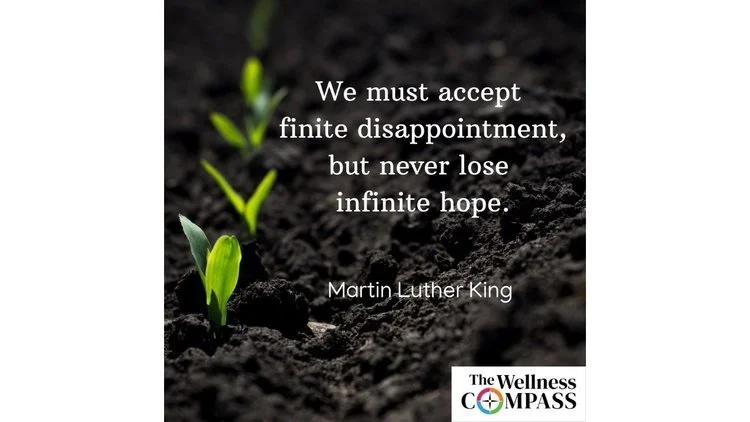Hope and the Mud Season
We live in Wisconsin, and like other places with northern climates, we actually have five seasons each year. Our fifth occurs between winter and spring and is known as the "mud season." If we need an image of the name for this extra season, we need only look at our mud-caked hiking shoes inside our back door, removed and left there to dry after a walk in the woods this past weekend. Or we can look out the window and observe the thirty-degree temperature swings that often occur daily, never knowing if we will see rain, snow, or sunshine.
There is a muddiness in the broader world right now that is so much more profound than anything related to the weather. The unspeakable violence and suffering we are witnessing in Ukraine, and closer to home the continued school shootings and the political uncertainty in our own country can create enormous swings of emotions within us day to day, or even hour to hour.
As mental health professionals, we know from our experience and research that the presence of hope within a person profoundly affects their resilience in the midst of such challenging times and their overall well-being. And so, right now, the question, really the challenge we hear from many people we talk with, is about how a person goes about nurturing and sustaining hope amidst so much suffering.
We believe that hope is like a muscle; it is not something we either have or don't have, but it can be exercised and strengthened. In our Wellness Compass Model for Well-being, we address eight areas of wellness, and one of those areas is spirituality.
Hope is often grounded and nurtured in our spirituality. Many people, but certainly not all, express their spirituality through a particular religious faith. In that light, it is worth noting that three of the world's great religions are celebrating holy days amidst the suffering and challenges facing our world right now. Ramadan, Passover, and Easter are all being observed across the globe.
None of these religions minimize the reality of suffering. Each of these faiths acknowledges the presence of profound suffering, and yet it is in the midst of it that they each proclaim hope. So, for example, we read the words of the Rev. Martin Luther King, Jr., "We must accept finite disappointment, but never lose infinite hope."
Mud season is real. Suffering happens in the world and our lives, as we are reminded all too often. Hope, though, doesn't just happen; it needs to be developed, practiced, and sustained, even when it is hard. In our fifteen-minute podcast, which is a companion to this column, we discuss some practices that nurture hope. You can listen to the podcast by clicking HERE or down below.
Sometimes hope springs forth all at once, symbolized by an unexpected sunny seventy-five-degree day in Wisconsin in April. More often than not, it appears as a small glimpse of a new crocus or daffodil just beginning to peek its head up through the soil on a cold and rainy day. In both cases, the hope is there, yet sometimes, we have to look closely to see it, given all the mud surrounding it.
Making It Personal: What helps you sustain hope in the midst of challenging and uncertain times? What role does your spirituality play in grounding hope for you? Is there anything specific you want to do to nourish your spirit and sense of hope right now?
****************************************************************************************************************
To explore your own well-being in the eight areas of wellness, you may be interested in downloading our newest FREE resource, The Adult Wellness Compass Notebook. This workbook is perfect for either individual or group use, and is a tool for self-reflection, learning, and goal setting. Click HERE to download and enjoy.
Each week Holly and Scott Stoner record the Wellness Compass Podcast. Each episode is about 15 minutes and offers a deeper dive into what appears here in the written column. You can listen to the Wellness Compass podcast in your favorite podcast app—just search for “The Wellness Compass,” and you can listen by clicking HERE and scrolling down to this week’s episode.
And speaking of podcasts, Scott has launched a new podcast this week that is just him speaking about a topic that he is passionate about—the integration of spirituality and wellness. You can listen to the newly launched Living Compass podcast by clicking on the word “Podcast” in the bar at the top of this Living Compass webpage or find it in your favorite podcast app (Apple, Google, Spotify, etc.)
Subscribe Now to Weekly Words of Wellness:
Click the button below to signup for the e-mail version of Weekly Words of Wellness. This weekly article can be shared with your community electronically and/or used for group discussion.
You can unsubscribe at any time.




